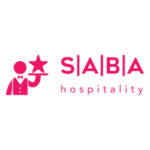 The expectation of hotel management graduates is that they are industry-ready. So, what does that mean? Most hospitality leaders would argue that this involves graduates having the skills and attributes required to work in the industry, however, evidence suggests that there is a gap between industry expectations and the skill set of hospitality graduates.
The expectation of hotel management graduates is that they are industry-ready. So, what does that mean? Most hospitality leaders would argue that this involves graduates having the skills and attributes required to work in the industry, however, evidence suggests that there is a gap between industry expectations and the skill set of hospitality graduates.
Industry continually provides feedback stating that graduates are not job-ready; they may have the practical skills set, the academic achievements, but their soft skills, specifically when it comes to the spoken word is lacking. Studies continue to prove that oral communication is ranked by many employers as the most important attribute when selecting candidates.
“There is a need for and it is of critical importance to have a well-developed ability to communicate for industry graduates.” – Craig Buckley, Rooms Division Manager, Grand Hyatt Melbourne
In an industry that is based on the employees’ ability to create memorable experiences and engage guests on an emotional, physical and intellectual level, the ability to communicate effectively is paramount. As hospitality is essentially a relationship based on employees and guests, research has proven that employees directly impact experience quality, overall customer satisfaction and thus drive revenue and profit through their use of communication. One recent example is the work by Ivkov and colleagues in (2019) explored the impact of ‘verbalised hospitality’ on repeat purchases.
In addition, the Hospitality Intelligence (HI) framework, by Godwin-Charles Ogbeideas, explores employees’ ability to provide customers with the right service at the right time for a delightful experience. The key dimensions within HI are enthusiasm, friendliness, respect and kindness. Each of these focuses on soft skills, and in particular, verbal communication and employees’ use of the spoken word. The ability to have employees create authentic and unique hospitality experiences through these dimensions is integral to an organisation’s overall success. As such, hospitality professionals must be trained in interpersonal and social behaviours to achieve this outcome.
“A vocabulary of truth and simplicity will be of service throughout your life.” – Winston Churchill
The apparent lack of communication skills in graduates today lays a potential foundation for future leaders to be ill-prepared to thrive and lead the global hospitality industry. The question is, how can we as hotel management educators better upskill these future hospitality professionals in social behaviour, arguably most important the spoken word?
Educators need to look at how the curriculum can better integrate opportunities to improve students’ soft skills, specifically oral (spoken) communication. The use of a theoretical component to have students understand the ‘why’ is needed. For example, the service language model by Dr. Madalyn Scerri can be used to explore the importance of the spoken word and the dynamic ways in which oral communication can be used in hospitality service encounters. Theory can be combined with an interactive practical component, such as roleplay, to understand the ‘what’. Teaching pedagogies that foster and support students in learning are also critical. For example, a pedagogy based on purposeful course content, a theory introduced by John Biggs, focuses on acquiring said soft skills. This could allow students to construct their own learnings and understandings through the before mentioned learning activities.
The challenge hospitality education faces is to find an appropriate blend of practical skills, academic achievement, and also interpersonal professional behaviours. Creating this balance will require hospitality educators to add soft skill competencies to further enrich the study of hospitality in higher education, and provide the sought after graduates our industry is demanding.



















